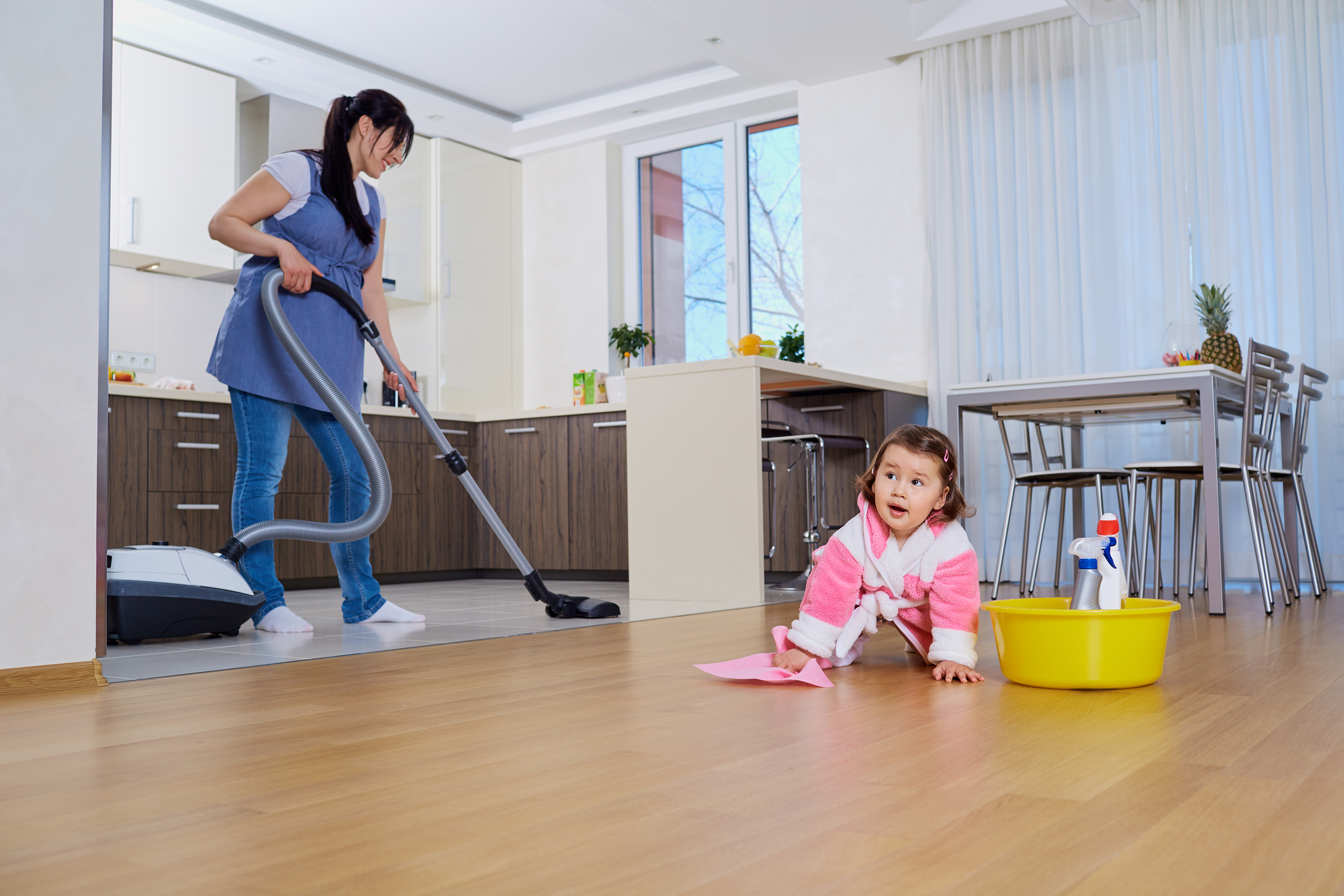Last month, I shared my feelings about housecleaning. Yeah, I hate it. But, I’ve learned to make it bearable by weeding out the poisons in my home that made me sick. I covered airborne irritants and their dangers in my last blog post. Now, let’s look at surface cleaning. You know. Floors. Counters. Sinks. Bathroom tile and fixtures. Furniture. Fabrics. Appliances. And, windows – ack!

Open the cabinet under your kitchen sink. What’s down there? If you have a childproof lock on that cabinet, you already know the answer. It’s poison. Quite literally. If your child needs to be rushed to the Emergency Room after ingesting something from under your sink, then you already know you’re cleaning your house with poison. If it’s poison to ingest it, why would you use it to clean surfaces that you or your child or your companion animals come into contact with? Kids put their fingers in their mouths after touching the surfaces you’ve cleaned. Animals clean themselves constantly and they are laying on the floors you just used that poison on. And, lastly, YOU are touching these same surfaces that you just used rubber gloves to clean because you didn’t want to get the poison on your hands.
Most cleaning products are laden with chemical toxins. Go into your kitchen and bath and take out the products under your sink. How many of them are chemical cocktails making outrageous claims of their cleaning, degreasing, and disinfecting ability? If ANY of them have chemical names in the ingredient list, dispose of them responsibly like you would any other poison. Bring them to your local recycling center and make sure they aren’t just dumping them down the drain.
If you wouldn’t drink/eat it, do not use it to clean your home. Not only are chemicals in cleaning products skin and eye irritants, many contain ingredients that are known carcinogens, endocrine disruptors, and may also cause birth defects. Why take any chances with your health or a family members’ health? Not to mention the health of your companion animals. Specifically, avoid ingredients such as bleach, toluene, parabens, formaldehyde and anything with benzene in the name. Also avoid anything that has chemical fragrance. Refer to the previous blog: Is Housecleaning a Danger to Your Health? Part I
Many people are now going the natural route. Most magazines and websites are now featuring homemade cleaning products. They clean surfaces naturally with a mixture of vinegar and water. You can clean almost anything with some variation of these ingredients: vinegar, baking soda, borax, lemon juice, hydrogen peroxide, and natural soaps like Castile or hemp. I have weblinks at the bottom of this blog with all sorts of formulas you can create right in your own home. If you don’t like the scent of vinegar, you can add a few drops of lavender essential oil. This provides an aromatherapy benefit as lavender has a calming effect on your brain. If you prefer another scent, like lemon or orange, because that is the smell that you associate with cleanliness, then by all means, use essential oils of lemon or orange or pine to clean surfaces. But, notice that it is the scent that is what you associate with cleanliness. That’s how fragrance makers get you to buy their chemistry experiments. It’s a psychological association with cleanliness. They synthesized those natural scents and turned them into chemical fragrance. Doesn’t it make sense to just use the natural source?
Okay, so maybe you’re not a Do-It-Yourselfer. For pure convenience, you just want to buy the lovely new “natural” cleaning products that are now increasingly more present in your local grocery store. There is absolutely nothing wrong with that. We should support companies that produce healthy products and are trying to make a difference by not contributing to the pollution of our planet. But, not all natural products are alike. There is natural and then there is the “greenwashed” products. Greenwashing is making your product look like it’s natural but it actually isn’t.
I have to admit that I fell victim to a greenwashed product myself. I bought a window cleaner made by a company called Green Works™ that was a clear liquid in a clear bottle, as opposed to the familiar blue spray that we shall not name here. I got home and used it to clean the countertop. Immediately, my nose picked up a chemical scent. I looked at the label more closely. Yup, chemicals. Turns out that Green Works is owned by Clorox™ — the least natural company on the grocer’s shelf. In 2007, Clorox purchased Burt’s Bees™, a small natural beauty brand sold in health food stores for a whopping $925 million.
At the time, I wondered why Clorox would be interested in tiny little Burt’s Bees. They were just trying to greenwash their image so they could hop on the “natural” products bandwagon straddling both the latter and the chemical side, making money off of all consumers. They made the Burt’s Bees buy just before launching the Green Works brand. Those rascals! I was furious at myself for falling for it. So, let the buyer beware!
So, what should you buy if you don’t want to make your own concoctions? There are many reputable brands on the market. I advise that you consult the Environmental Working Group’s recommended products that can be found here: http://www.ewg.org/guides/cleaners Then go to the store and check them out for yourself. Some are very high priced due to package design and marketing. But, there are many affordable options.
I encourage you to visit the links below to find options for both off-the-shelf products or for recipes for homemade cleaners. Cleaning can be a fresh, pleasant, and healthy experience. I won’t go so far as to say it’s fun. But, I’ll definitely settle comfortably for healthy. As you begin the new year, consider cleaning up your cleaning supplies. While you’re at it, put on your favorite music and make it a sensory experience. Happy cleaning!
References
- https://wellnessmama.com/361/natural-cleaning-recipes/
- http://blog.thelaundress.com/wordpress/project/tips-tricks-for-cleaning-with-vinegar/
- http://www.ewg.org/guides/cleaners /
- http://hbelc.org/faqs-61666?start=5&gclid=CjwKEAiAjvrBBRDxm_nRusW3q1QSJAAzRI1tgW3bPI-darJDIgMnwYHe5KlmdS05WVbmCpqp0S1O8RoCk-Dw_wcB
- http://www.prevention.com/health/healthy-living/nontoxic-green-cleaners-your-home /
- http://www.webmd.com/children/features/safer-cleaning-products#1 /
- http://eartheasy.com/live_nontoxic_solutions.htm /
- http://www.treehugger.com/slideshows/green-home/10-eco-friendly-all-purpose-cleaners-clean-toxic-chemical-free-home/ /
- http://www.womensvoices.org/safe-cleaning-products/ /
- http://theecofriendlyfamily.com/2012/07/5-tips-for-choosing-safe-cleaning-products/ /
- http://www.onegreenplanet.org/lifestyle/the-best-all-natural-cleaning-products-for-your-home/ /
- https://experiencelife.com/article/8-hidden-toxins-whats-lurking-in-your-cleaning-products/
- https://hpd.nlm.nih.gov/cgi-bin/household/brands?tbl=brands&id=16025001 /
Stay Informed. . . Stay Healthy!




https://www.youtube.com/watch?v=2U3hfEEl_qk&t=180s
I thank you very much for your post
I want to do video’s about real cleaning
It’s not about smearing chemicals on things at home
I see stupid people …… everywhere!
I made this video
and makings more.
Good that you’ve mention about this. In choosing cleaning products we should always avoid harmful toxic chemicals.